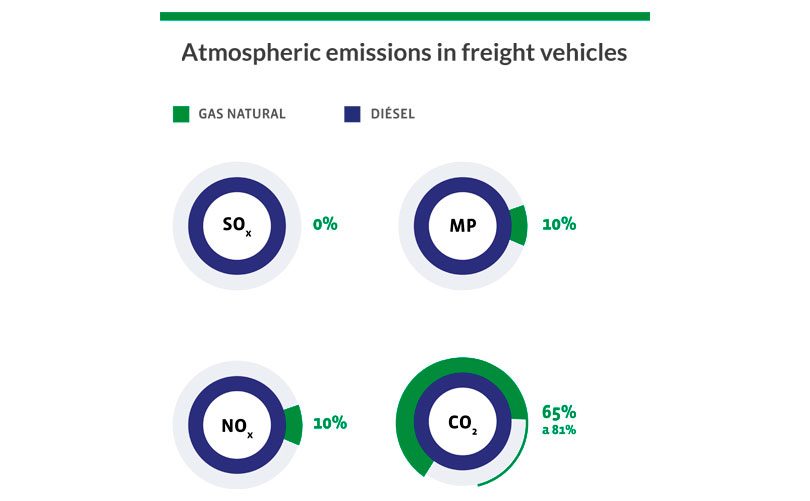Natural gas is the cleanest fossil fuel and its use contributes to better air quality in cities.
LNG is natural gas that has been converted into a liquid by cooling it to -160° Celsius. It is stored in its liquid state at ambient pressure and has a volume approximately 600 times smaller than when in its gaseous form. This enables LNG to be transported economically and safely over long distances, without losing its fundamental characteristics.
Natural gas is a mixture of light hydrocarbons. It is between 92% and 98% methane (CH4), with smaller amounts of other substances such as ethane, propane, butane, nitrogen and carbon dioxide.

Natural gas is significantly cleaner than other fossil fuels. For example, the graph below shows the atmospheric emissions of a natural gas-fueled freight vehicle as compared to one using diesel, showing reductions of 100% in sulfur oxide, 90% in particulate matter and nitrogen oxide and 65% in carbon dioxide (greenhouse gases).
This explains the importance of encouraging the use of vehicular natural gas in the buses, taxis and fleets of commercial vehicles that circulate in large cities. Moreover, natural gas generates comparatively fewer emissions of local polluting gases (such as SO2, NOx and PM) per unit of energy produced.
The substitution of other fossil fuels by natural gas implies a significant reduction in emissions, directly benefiting the community by improving air quality in cities and areas around the industries that use it.
